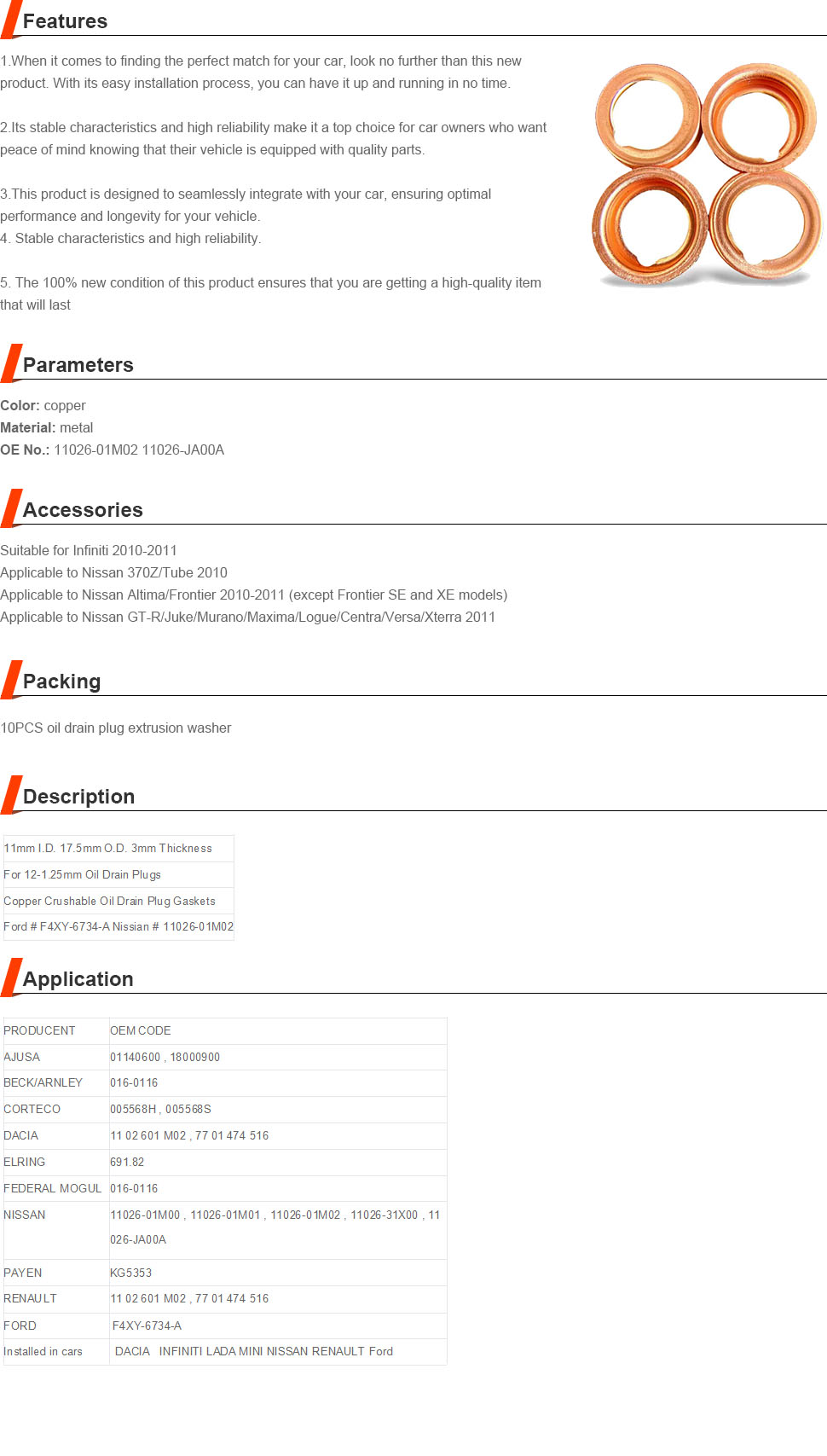Oil Cooler Housing Leak Causes and Solutions for Efficient Engine Performance
Understanding Oil Cooler Housing Leaks Causes, Symptoms, and Solutions
Oil cooler housing leaks can be a significant issue for many vehicle owners, particularly for those who operate older models or high-performance vehicles. The oil cooler is a vital component in an engine’s cooling system, designed to regulate engine temperature by dissipating heat from the engine oil. When the oil cooler housing develops leaks, it can lead to engine overheating, oil starvation, and potentially catastrophic engine failure. In this article, we will explore the causes, symptoms, and solutions concerning oil cooler housing leaks.
Causes of Oil Cooler Housing Leaks
1. Wear and Tear Like many parts in a vehicle, the oil cooler housing is subject to wear and tear over time. Aging materials can become brittle and develop cracks, especially when exposed to extreme temperatures and pressure.
2. Corrosion If the oil cooler housing is made from aluminum or any metal susceptible to corrosion, prolonged exposure to moisture and contaminants can lead to rust and degradation. This is especially prevalent in regions where roads are treated with salt during winter months.
3. Improper Installation If the oil cooler housing is not installed correctly, it can lead to leaks. This can happen due to improper torque specifications or misalignment during the installation process.
4. Damaged Seals or Gaskets The oil cooler housing typically has seals or gaskets that help keep oil contained within the system. Over time, these seals may deteriorate, leading to leaks. Heat, pressure, and exposure to oil often accelerate this degradation.
5. Excessive Pressure If there are problems in the oil system, such as a blocked filter or a faulty oil pump, it can cause excessive pressure. This increased pressure can create leaks in the oil cooler housing.
Symptoms of Oil Cooler Housing Leaks
Recognizing the symptoms of an oil cooler housing leak early can save vehicle owners from more significant repairs down the line. Here are some common signs to watch for
1. Oil Spots If you notice oil spots on your driveway or parking space, it may be a sign that oil is leaking from the cooler housing.
2. Low Oil Levels Regularly checking your oil levels is essential. If you find that your oil level is consistently low without any visible leaks, the oil cooler housing may be the culprit.
oil cooler housing leak

3. Engine Overheating An oil cooler housing leak can cause the engine oil to lose its capacity to dissipate heat, leading to engine overheating. If your temperature gauge shows high levels, it’s crucial to investigate further.
4. Strange Engine Noises Lack of sufficient oil can result in inadequate lubrication, leading to unusual engine noises like knocking or ticking.
5. Fluid Mixing A more severe issue arises if engine coolant and oil mix, which can happen if the oil cooler itself fails. This can create a sludge-like substance in the engine, leading to extensive damage.
Solutions for Oil Cooler Housing Leaks
Addressing an oil cooler housing leak involves a few steps and might require professional help, depending on the severity of the issue
1. Inspection The first step is to conduct a thorough inspection of the oil cooler housing, looking for visible cracks, leaks, or damage to seals and gaskets.
2. Tightening Connections Loose bolts and fittings might be a cause of leaks. Carefully tightening these connections can mitigate minor leakage issues.
3. Replace Seals and Gaskets If the seals or gaskets are damaged, replacing them could solve the leakage problem swiftly and affordably.
4. Repairing Cracks Small cracks may be repaired using specialized sealants, but larger cracks often require complete replacement of the oil cooler housing.
5. Professional Assistance If the leak is extensive or if there’s evidence of coolant and oil mixing, it’s advisable to consult a professional mechanic. They can diagnose the root cause accurately and recommend appropriate solutions.
Conclusion
Oil cooler housing leaks are not just a nuisance; if ignored, they can lead to severe engine damage. Understanding the causes, symptoms, and solutions is essential for vehicle maintenance. Regular inspections and timely repairs can help ensure the longevity of your engine and maintain optimal performance. If you suspect you have an oil cooler housing leak, don’t hesitate to address it promptly.
-
Oil Drain Plug Washer Reusable Types
News Aug.22,2025
-
Oil Drain Plug Replacement Guide
News Aug.22,2025
-
Heavy Duty Seal Waterproof Features
News Aug.22,2025
-
Engine Oil Seals Installation Guide
News Aug.22,2025
-
Seal Oil for Sale High Temperature Grade
News Aug.22,2025
-
Cassette Seal Compact Design
News Aug.22,2025
-
Simplifying Oil Changes: A Comprehensive Guide to Oil Drain Plugs and Their Variants
News Aug.04,2025
Products categories















